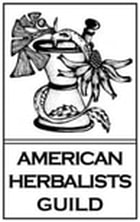|
What’s an assay and why should you dig for it on a CBD website? And what about a certificate of analysis (COA) - isn’t that the same as an assay?
An assay and a COA are not the same thing. An assay will give a complete chemical breakdown - everything in a substance. A COA will give the results of a specific question only. In the case of CBD, a certificate of analysis will typically only show that it meets federal law and has less than .03% THC in the particular batch tested. On the other hand, an assay will show the THC level (all forms), plus all the supporting chemicals (flavonoids, terpenes, all the cannabinoids). A good assay panel will also list all the pesticides and residue contaminants (such as heavy metals), which is excellent information to make sure the produce was grown organically. Good assays and COAs will have the name, address, and contact information for the lab. It will also have the date the testing was performed. Why isn’t it enough just to have a COA? The CBD industry is unregulated. Anyone can make a flashy website and claim they sell only organically grown CBD. A COA only answers one question, usually how much THC is in a given sample. An independent lab analysis, an assay, is how an honest company can be transparent with its customers. Yes, they can have a fake COA or assay. You can always take the next step and call the lab or investigate the lab if you want to. For example, Ravenswood Natural Health currently carries three brands of CBD: Charlotte’s Web, Fountain of Health, and Upstate Elevator. On all three websites, they link to the current batch assays that show chemical makeup, any contaminants, and any THC. The shop also has two other companies that produce topical CBD salves and butters. One uses an isolate, which is super-purified, and the other grows its own and processes it through a local medical marijuana dispensary. An assay is available on request. Charlotte’s Web even has QR codes on each box to link straight to the assay for that bottle’s batch. That is super clear, super transparent. Now compare that level of openness with Brand Z that a friend recently asked me to investigate. Flashy website, lots of science-y jargon. Assays nowhere to be found. Not a whisker of a COA to be seen. I checked out the documents my friend emailed me. Still no assay or COA. I finally found a sort of assay summary - dated December, 2017 (!). No lab information anywhere. The footer read: “Online publication of this document, including social media, is strictly prohibited. Reproduction, except in full, without written approval by Brand Z is strictly prohibited.” According to their address, they have a suite in an office building with a bunch of dentists and insurance agents. They are also next door to Fuzzy’s Tacos. Well, this leads me right back to my one-track rant: Where exactly is the product grown, processed, and packaged? In the back room at Fuzzy’s? I sure as heck don’t see enough room to squeeze a full-bore processing gig between dentist offices otherwise. Now compare that level of “fuzziness” with one of our topical CBD producers. I had requests for their Wonder salve, so I started investigating their website. Then I emailed my first round of questions, and finally called with even more questions. One of the owners always responded - very open, very willing to take the time to answer. On one of the calls I made, I heard farm noises in the background, and the man was a little distracted. He couldn’t help much more as they were running flat out - and his wife just drove by on the tractor to open up another field to plant more hemp, and he had to run and help her… I hope this blog has helped. Be sure to drop by and check us out. We have more than just CBD and a wild-haired herbalist.
0 Comments
|
AuthorClinical herbalist, shop owner, wild haired Saxon Celt. Coffee fuelled herbal wild woman. Nuff said. Archives
May 2019
Categories |
 RSS Feed
RSS Feed
